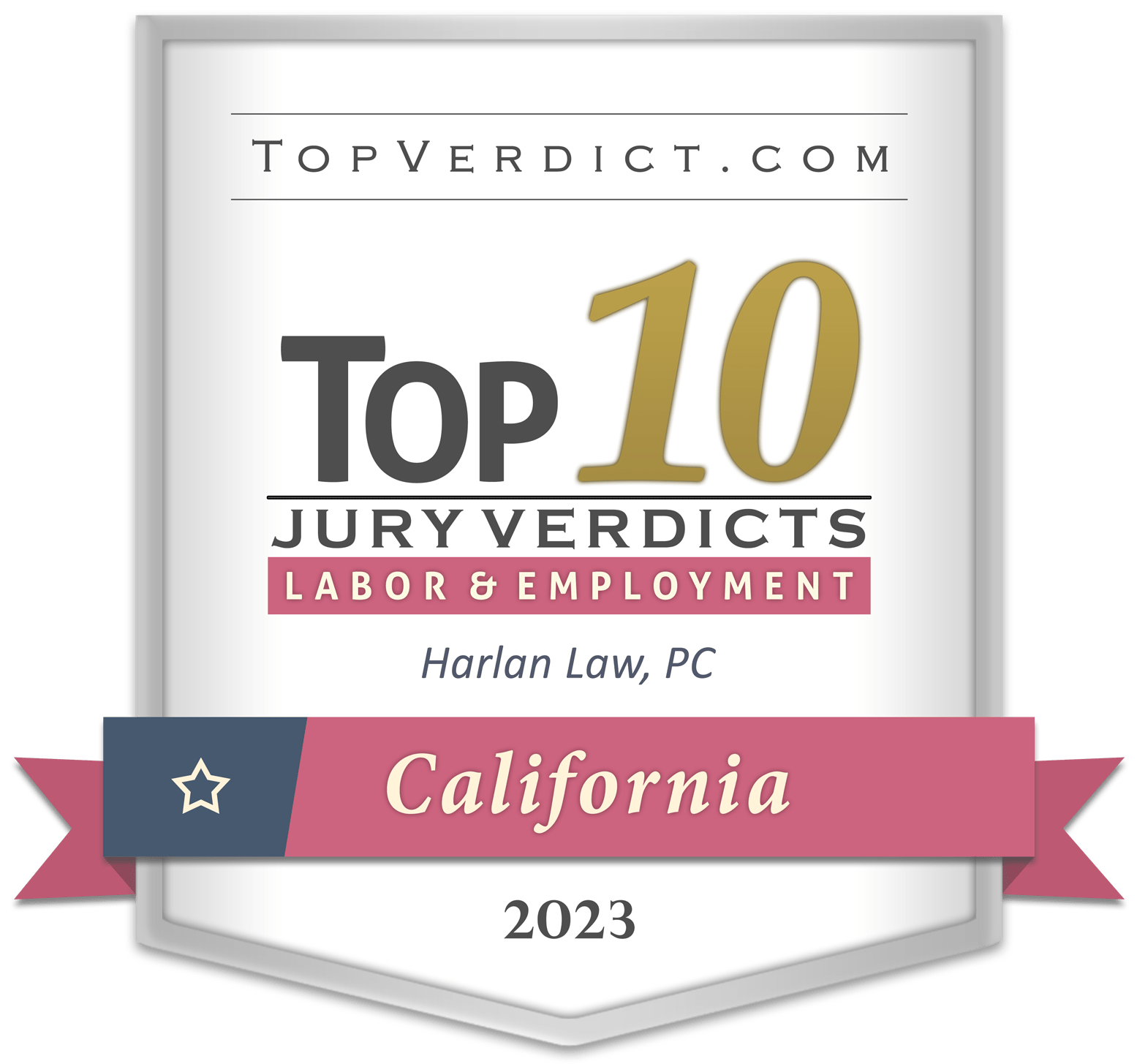PRACTICE AREA
Family, Medical, and Parental Leave in California

None of us wants to imagine ourselves or our family members getting sick or injured. When the unthinkable happens, we want to be able to take the time to care for our loved ones without having to also worry about losing our jobs.
That’s where state and federal leave laws come in to protect workers.
In California, qualifying employers must give their qualifying employees certain benefits under the law. This includes family, medical, and parental leave. If your employer doesn’t give you the leave you’re entitled to, you can take legal action against them.
California has some of the most robust employee protections in the country. The federal Family and Medical Leave Act (FMLA) and the California Family Rights Act (CFRA) grant employees 12 weeks of unpaid leave to take care of their health or family. Under these laws, your employer cannot fire you for taking your legally protected leave.
In addition, California has a Paid Family Leave (PFL) program, where you can qualify to receive 50% or more of your regular wages during your leave for up to 8 weeks.
Even though employees have had the right to family and health leave for decades, some dishonest companies still try to deny workers leave time. Your employer cannot punish, demote, or fire you for taking your government-protected leave. Employers who threaten retaliation against workers for taking time off can be brought to court for their misconduct.
At Harlan Law, our San Diego employment law firm represents employees who:
- Have been denied the right to take FMLA or CFRA leave,
- Were fired for leaving before, during, or after taking leave time,
- Had their benefits discontinued (such as health insurance) while on leave, or
- Experienced major changes to the terms and conditions of their employment after returning from leave (such as reduced pay, reassignment, or schedule shifts).
Sometimes, employers will make up reasons to punish or terminate a worker for taking leave. They may claim company restructuring or even falsely accuse you of poor performance. Unfortunately, companies who refuse to allow their employees to take legally protected leave often act in bad faith and with bad intentions. This is why it’s crucial to have a strong strategy to fight back in defense of your livelihood and professional reputation.
If you’ve been pushed out of your job because you took time off of work that is your legal right, call our San Diego employment law offices for a free consultation today at (619) 870-0802. Our experienced firm is dedicated to getting your career back on track.
Federal Rights Under the Family and Medical Leave Act (FMLA)
Imagine taking time off to care for your family’s health only to find out while you’re gone that you’ve been demoted or fired from your job.
The Family and Medical Leave Act (FMLA) helps employees handle family and medical issues without having to sacrifice their jobs. The law applies to all 50 states and grants employees up to 12 weeks of protected, unpaid time off.
When you take FMLA leave, you must have a job available to you when you return to work. Although it doesn’t have to be the exact same job you had before, your position when you return must be similar and equivalent to the one you previously held, in both pay and job duties.
To be covered under the FMLA, you must be classified as a qualifying employee who works for a qualifying employer. If you suspect you’re a qualifying employee but your employer has classified you otherwise, you may be misclassified – which is also illegal.
Who Is Covered Under the FMLA?
The FMLA applies to your employer if you work for:
- Any public or private elementary or secondary schools,
- Any local, state, or federal government agency, or
- A private employer with 50+ employees located within 75 miles.
To qualify for FMLA as an employee, you must:
- Work for an employer who qualifies under the FMLA,
- Have worked for the same employer for at least 12 months and 1,250 hours within the last 7 years (consecutive or not), and
- Work within 75 miles of a worksite with 50 employees or more.
Although it’s not required under the FMLA, your employer is allowed to ask for proof of a serious illness before granting you leave time.
How Much Leave Time Can You Take Under the FMLA?
The FMLA allows a total of up to 12 weeks of unpaid leave within a 12-month period for serious medical conditions such as childbirth, illness, injury, or disability. You can also use FMLA leave to care for others in your immediate family. In-laws are not covered.
You must take your leave within 12 months of a qualifying condition such as:
- Childbirth and other pregnancy-related conditions
- Caring for a newborn under the age of 1
- Caring for a foster or adopted child within a year of placement
- Attending to a spouse, child, or parent with a serious medical condition
- Caring for your own health when you have a serious medical condition that makes it impossible for you to work
- Family care when a military family member is on active duty
You can take a total of 26 weeks of unpaid leave when caring for an injured or sick military member who is your spouse, child, parent, or next of kin under your custody.
What is Considered a Serious Medical Condition Under the FMLA?
The FMLA considers a serious medical condition to be an injury, illness, disability, or physical or mental impairment that has one or more of the following effects:
- Pregnancy and prenatal care
- Bonding with a newborn child after the birth
- Becoming incapacitated physically or mentally
- Staying overnight in a hospital, hospice, or another medical facility
- Chronic health conditions requiring periodic care such as diabetes, asthma, or epilepsy
- Untreatable health conditions such as terminal illness, Alzheimer’s, or stroke
- Required time off for at least 3 days for treatments or recovery
The above list includes medical care as a result of organ donation or domestic violence, both of which may include extended hospital stays.
To establish a serious medical condition, you must show:
- A doctor’s visit within 7 days of symptoms to establish a diagnosis,
- At least 2 separate visits to a doctor within a 30-day period,
- The second visit is deemed “necessary” by the doctor, and
- More than 3 days of absence is required because of the condition.
If you meet these factors, your employer must grant you FMLA leave under the law. If they don’t, you can take legal action against your employer.
What is Intermittent FMLA?
What if your family member’s condition allows you to continue working, just not full-time?
You don’t have to take all your FMLA leave at once. Instead, you can:
- Take leave in separate blocks of time even if the underlying reason is the same, or
- Take leave through a reduced work schedule, either daily or weekly.
Intermittent leave allows you to continue earning a paycheck while caring for your family. With this flexible approach, you can lessen your workload without leaving your job completely.
If you take intermittent leave, you must make an effort to work with your employer’s schedule. During your leave, your employer is allowed to temporarily transfer you to another position if it suits your alternate schedule better than your original job.
California State Family and Medical Leave Rights
The California Family Rights Act (CFRA)
California employees are covered by both the FMLA and the California Family Rights Act (CFRA). However, the CFRA has slightly different rules than the FMLA.
- Under the FMLA, you can take time to attend to a service member who is a spouse, child, parent, or next of kin. The CFRA covers only your spouse, children, and parents.
- While pregnancy is a “serious medical condition” under the FMLA, the CFRA doesn’t cover pregnancy by itself. Instead, you could take up to 4 months of leave with California’s Pregnancy Disability Leave.
- The FMLA allows you to take protective leave if a family member goes on active military duty, but the CFRA doesn’t cover this condition. Instead, California allows leave for military families under the Military Family Leave Act.
- The FMLA does not consider domestic partners as “spouses” even if they’re registered. The CFRA does. This extends rights to many unmarried cohabiting couples.
Effective January 1, 2021, the CFRA applies to any private employers with 5 employees or more and all public employers. In addition, the CFRA no longer requires employees to work within 75 miles of a worksite. As a result of these changes, many more employees are covered moving forward under the CFRA than under the FMLA.
Recent changes to the CFRA also extended the California state law’s definition of “family members.” Starting in 2021, the new definition covers all children (not just minors and dependents), your spouse, parents, as well as siblings, grandparents, grandchildren, and domestic partners. As a result, California employees can get the benefit of leave to take care of a much wider circle of family members.
In addition to the CFRA, California has a number of other statutes and laws that allow for varying levels of employee leave, including:
- California Paid Temporary Disability Insurance
- The California New Parent Leave Act (NPLA)
- The California Small Necessities Act
The California Labor Code also offers leave for:
- Organ or bone marrow donors
- Victims of domestic violence, sexual assault, or stalking
- Family crises such as divorce counseling, conflict resolution, or emergencies
The options can be overwhelming, so it’s best to speak with a local employment lawyer who can help you navigate the particulars of state and federal leave.
Most of the leave available to employees is unpaid, which can cause additional economic stress for those who need to take time off. Fortunately, California has a program that offers paid family leave to employees who qualify.
California Paid Family Leave (PFL) Benefits
California’s Paid Family Leave (PFL) program provides payments but not job protection to employees taking care of a child, spouse, domestic partner, parent, in-law, grandparent, grandchild, or sibling with a serious medical condition.
If you qualify for PFL relief, depending on your income, the benefits you receive may cover 50% or more of your wages for up to 8 weeks within a 12-month period. Since most government-protected leave is unpaid, this additional income could make a big difference for your family while you take time off work to care for them.
To qualify for paid family leave benefits under the PFL program, you must:
- Be employed or actively looking for work at the time you need leave,
- Be unable to work because you’re attending to a family member with a serious medical condition or bonding with a new child, and
- Have lost wages due to caring for your family.
You must complete your PFL application within 41 days of your family leave starting. You will also have to provide a medical certificate confirming the illness.
The laws around paid and unpaid family and medical leave can be confusing, especially when it comes to how these laws interact with each other. Your best option for protecting your legal rights as an employee is to talk to an employment lawyer about your unique situation.
Protect Your Rights to Family and Medical Leave
Employment issues can be complex, with your career and livelihood at stake. Usually, they’re the last thing you want to think about when your family is ill or injured. You have the legal right to care for your family without worrying about derailing your career.
Federal and California state laws allow employees to take protected leave, which means you can expect your job to be waiting for you when you return. You might even be eligible for additional benefits under the law, like leave payments for the paychecks that you miss.
If your employer is challenging your right to protected leave or punishing you for taking time off to care for your family, you can bring legal action against them for misconduct.
Most employees don’t want to fight their employers and put their jobs at risk. Many people don’t have nearly the same amount of resources and money as the companies they work for, which is why at Harlan Law we take our employment cases on a contingency fee basis.
Contingency fee billing means no up-front costs for you. You don’t pay us until we recover what your employer owes you under the law. You don’t have to worry about how you can afford a lawyer – instead, you can focus on you and your family’s health and well-being.
At Harlan Law, we fight for employees. Call our San Diego employment law firm now at (619) 870-0802 for a free consultation of your case.

About Harlan Law
Our San Diego law firm is dedicated to providing the best advocacy possible for clients nationwide. Call our experienced personal injury and employment lawyers today at 619.870.0802 for your first free consultation.
Free Consultation
Start by contacting us for your free case review.
Client Experience
“I was hit by a drunk driver and my car was totaled. Because there were other injured parties, it was difficult to get the insurance company to cover my medical bills and other losses. Suffering from severe pain while trying to navigate insurance claims and medical bills left me feeling extremely vulnerable and overwhelmed. I was referred to Jordon through a friend. He communicated with me regularly and made sure I always understood what was happening. Jordon negotiated a settlement that would otherwise have taken years due to the other parties involved. I had never needed an attorney before, but if I ever do again, I’ll call Jordon.”


